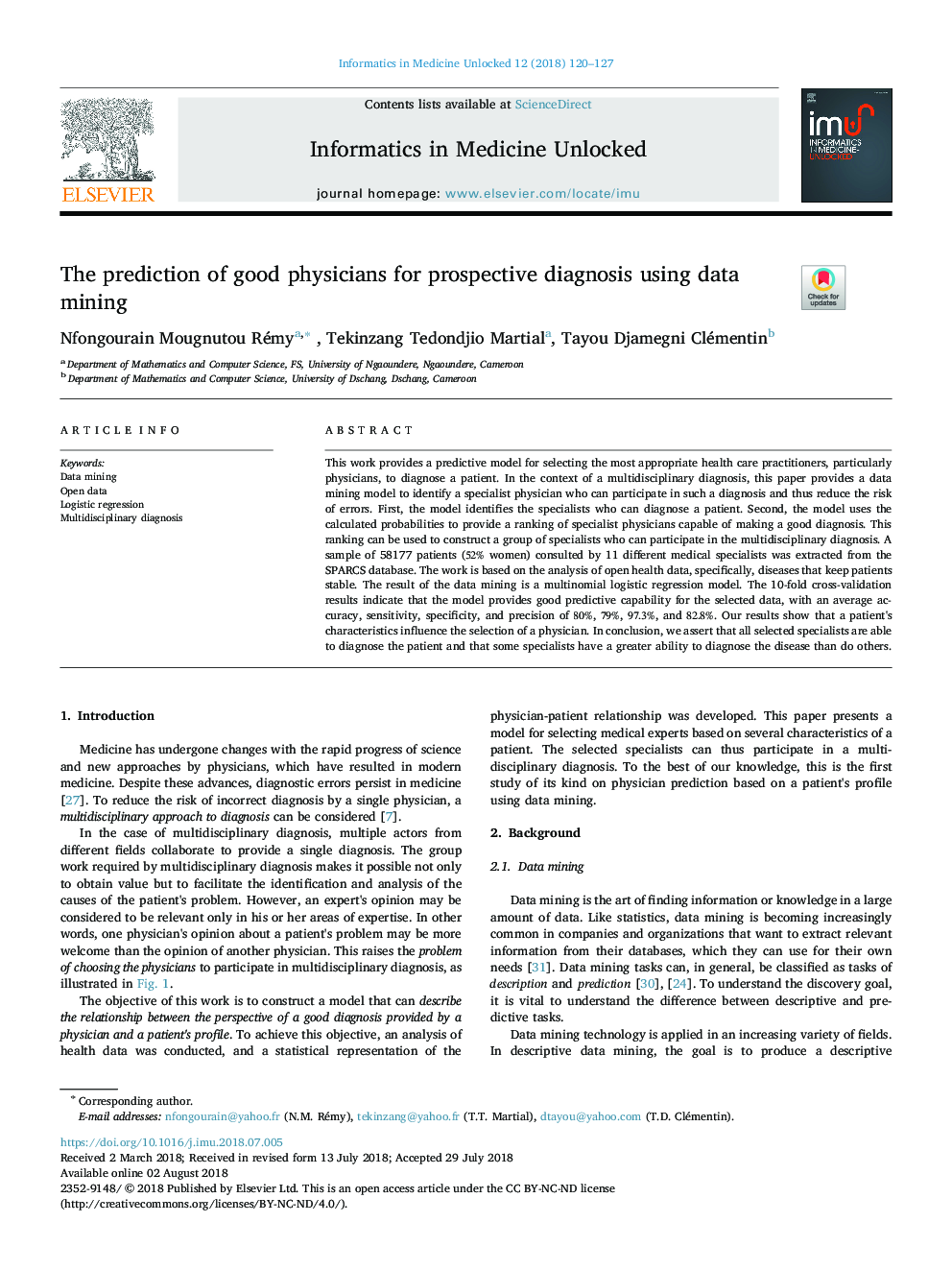| Article ID | Journal | Published Year | Pages | File Type |
|---|---|---|---|---|
| 6898884 | Informatics in Medicine Unlocked | 2018 | 8 Pages |
Abstract
This work provides a predictive model for selecting the most appropriate health care practitioners, particularly physicians, to diagnose a patient. In the context of a multidisciplinary diagnosis, this paper provides a data mining model to identify a specialist physician who can participate in such a diagnosis and thus reduce the risk of errors. First, the model identifies the specialists who can diagnose a patient. Second, the model uses the calculated probabilities to provide a ranking of specialist physicians capable of making a good diagnosis. This ranking can be used to construct a group of specialists who can participate in the multidisciplinary diagnosis. A sample of 58177 patients (52% women) consulted by 11 different medical specialists was extracted from the SPARCS database. The work is based on the analysis of open health data, specifically, diseases that keep patients stable. The result of the data mining is a multinomial logistic regression model. The 10-fold cross-validation results indicate that the model provides good predictive capability for the selected data, with an average accuracy, sensitivity, specificity, and precision of 80%, 79%, 97.3%, and 82.8%. Our results show that a patient's characteristics influence the selection of a physician. In conclusion, we assert that all selected specialists are able to diagnose the patient and that some specialists have a greater ability to diagnose the disease than do others.
Related Topics
Physical Sciences and Engineering
Computer Science
Computer Science (General)
Authors
Nfongourain Mougnutou Rémy, Tekinzang Tedondjio Martial, Tayou Djamegni Clémentin,
